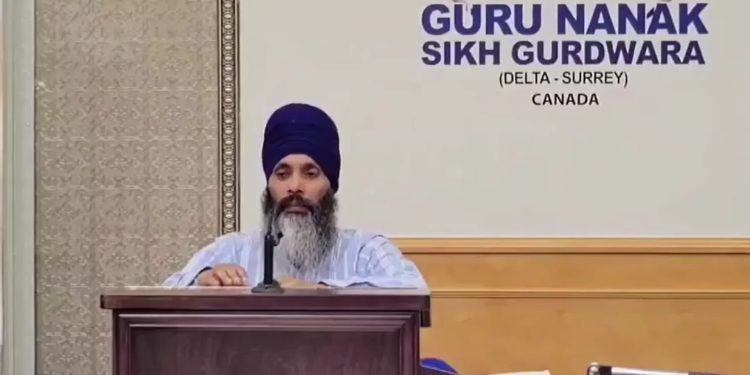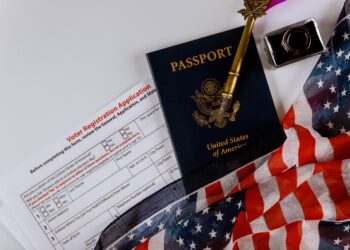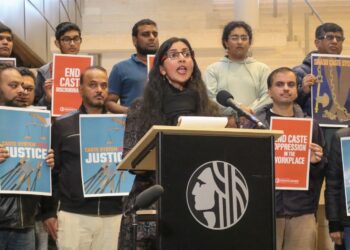Indian authorities’ wanted advocate for a separate Sikh nation in India’s Punjab state, Hardeep Singh Nijjar was fatally shot in Canada, according to local police reports on Monday.
The Royal Canadian Mounted Police disclosed that a man was discovered in his pickup truck parked at the Guru Nanak Sikh Gurdwara temple in Surrey, British Columbia, at approximately 8:30 pm on Sunday. He had sustained gunshot wounds and was pronounced dead at the scene.
Initially unnamed, the victim was later identified as 45-year-old Hardeep Singh Nijjar, the president of the temple who actively advocated for the establishment of Khalistan, a Sikh state. In a subsequent statement, the police revealed that they released Nijjar’s identity in the hopes of progressing their investigation.
Timothy Pierotti from the Integrated Homicide Investigation Team of the police addressed the speculations surrounding the motive behind the homicide, stating, “We understand there is a lot of speculation regarding the motive of this homicide, but we are dedicated to learning the facts and letting the evidence lead our investigation.”
Hardeep Singh Nijjar, who had been sought by Indian authorities on charges of terrorism and conspiracy to commit murder, reportedly denied these allegations to Canadian media.
According to the World Sikh Organisation of Canada, Nijjar had received warnings from Canada’s spy agency about threats against him.
The organisation described his death as an “assassination in a targeted shooting.” They also highlighted the deaths or suspicious circumstances surrounding other prominent Khalistan activists in recent months, such as Avtar Singh Khanda in Britain and Paramjit Singh Panjwar in Pakistan.
Following the killing of Khalistan Commando Force head Paramjit Singh Panjwar in Pakistan the previous month, Nijjar spoke to a Canadian radio channel, stating, “I have information that a list has been prepared with my name on it.” Similar sentiments were also reportedly shared in his public speeches.
Kanwar Pal Singh of Dal Khalsa noted, “Nijjar had delivered a speech at the Gurudwara just before the incident. In that speech, he expressed that any day could be his last day. He had been voicing this sentiment on various platforms for some time”.
The state of Punjab in India, with a population comprising approximately 58 per cent Sikhs and 39 per cent Hindus, experienced a turbulent period during the 1980s and early 1990s due to a violent Khalistan separatist movement, resulting in the loss of thousands of lives.
Currently, the most vocal advocates of the separatist movement are primarily found within the Punjabi diaspora.
India has consistently raised concerns with foreign governments, including Ottawa, regarding the activities of Sikh hardliners within the Indian diaspora. India alleges that these individuals are attempting to revive the insurgency. In March, Indian authorities summoned Canada’s senior diplomat to New Delhi following a gathering of Sikh protesters outside India’s diplomatic mission in Canada.
Nijjar, who migrated to Canada in 1997 and worked as a plumber, was implicated in multiple cases registered by the Punjab Police, which led to the issuance of a red corner notice against him.
According to a Punjab government directive in 2020, a total of 11 kanal and 13.5 marla of land owned by Nijjar was seized in his native village of Bhar Singh Pura in the Phillaur subdivision of Jalandhar district.
A resident of the village mentioned that Nijjar and his family had relocated many years ago, but his parents frequently visited the village and were last seen there before the Covid lockdown measures were implemented.











